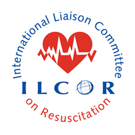All seven constituent councils of ILCOR are supporting a global initiative to increase awareness about the importance of bystander CPR and to also increase actual bystander CPR rates worldwide.
Using the hashtag #WORLDRESTARTAHEART we are gathering stories of survivors who are still with us today, thanks to bystander CPR and underline the vital importance of CPR in out-of-hospital settings.
By starting CPR and using a defibrillator before emergency services arrive, we can save up to 200 000 more lives every year. Make sure you know what to do – learn CPR!
Follow us on Twitter, Instagram, Facebook and LinkedIn to learn more about all World Restart A Heart initiatives!
What is World Restart a Heart
Every year, globally of lives are lost due to cardiac arrest, but it doesn’t have to be that way. With the power of bystander CPR, you can help change that! By acting quickly in those crucial moments before emergency services arrive, you can help save up to 200,000 lives every year.
That's where World Restart a Heart comes in! We want to raise awareness about the importance of bystander CPR and to encourage everyone, everywhere, to be ready to help.
What You Can Do:
- Learn CPR: Knowing how to perform CPR and use a defibrillator could make the difference between life and death.
- Share the Message: Use the hashtag #WorldRestartaHeart on social media to spread the word, share stories, and inspire others.
- Get Involved: Follow us on Twitter, Instagram, Facebook and LinkedIn for updates from life-saving events around the world.
What is a Cardiac Arrest?
A cardiac arrest is a sudden and serious medical emergency where the heart unexpectedly stops beating. When this happens, the heart is unable to pump blood to the brain, lungs, and other organs, causing the person to collapse, lose consciousness, and stop breathing or have abnormal breathing. Without immediate treatment, such as CPR (Cardiopulmonary Resuscitation) or using a defibrillator, cardiac arrest can be fatal within minutes.
Cardiac arrest is different from a heart attack, which occurs when blood flow to the heart is blocked. However, a heart attack can sometimes lead to a cardiac arrest.
Immediate action by a bystander can significantly increase the chances of survival!
When is World Restart a Heart Day?
Events are happening globally throughout the year, however, mark your calendar forOctober 16 every year! This is our global day of action, where we unite to promote CPR training and save lives. It’s easy to get involved, whether through hands-on training, sharing resources, or participating in local events.
Why It Matters:
Bystander CPR is critical in out-of-hospital cardiac arrest cases. Immediate action can double or even triple survival rates. We’re calling on YOU to be part of this life-saving movement!
What Happens on World Restart a Heart Day?
- Training events will happen around the world, focusing on how easy and important it is to learn CPR.
- Survivor stories will be shared to show the real-life impact of CPR.
- Resources and tools will be available to help you, your community, or even your school get involved.
While October 16 is the official day, activities and training can take place all year long. Whether you're learning CPR for the first time or refreshing your skills, you can be part of the solution.
How Can You Join the Movement?
- Learn CPR – Take a CPR course and be prepared to save a life.
- Spread the Word – Share your experience and encourage others to get trained.
- Join the Conversation – Follow and use #WorldRestartaHeart to stay connected and help raise awareness!
